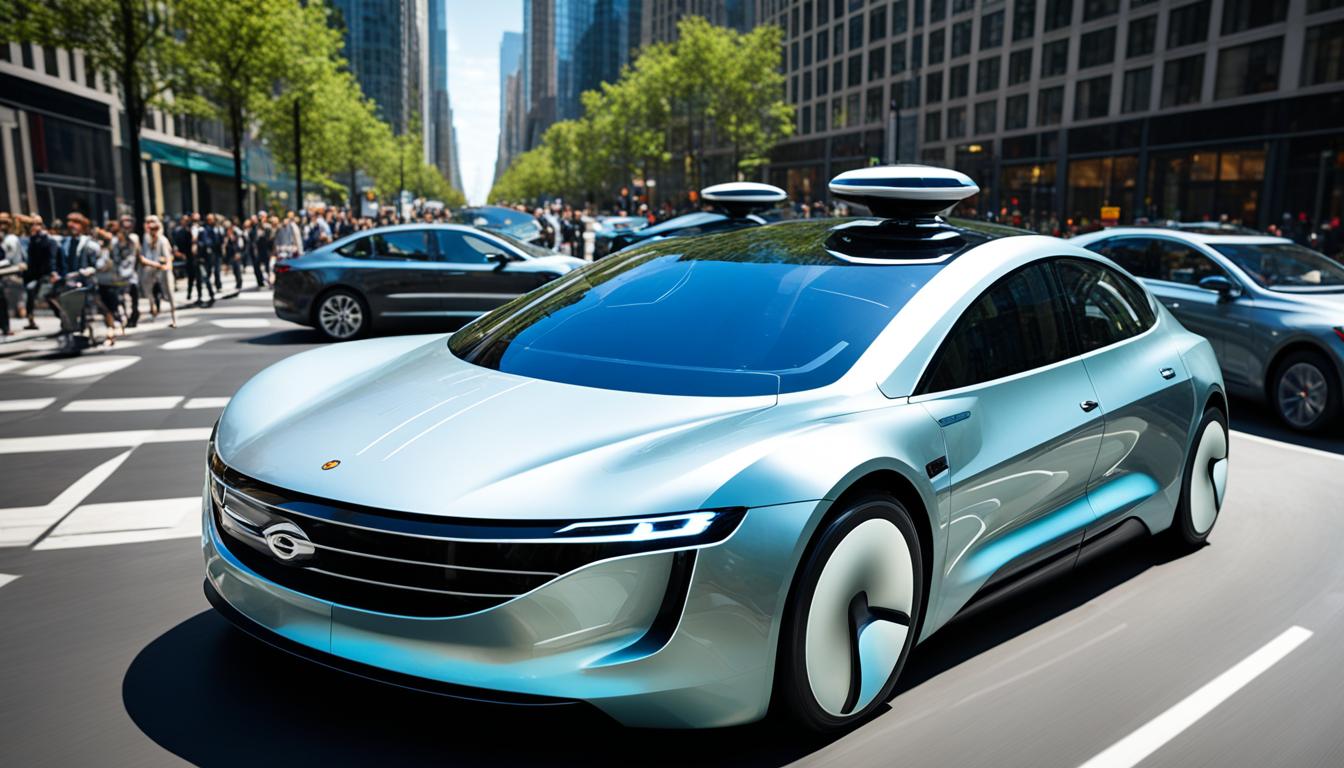
Harnessing the Sun: The Rise of Solar-Powered Vehicles
Solar-powered vehicles are revolutionizing the transportation industry, offering an exciting and environmentally friendly alternative to traditional gasoline-powered cars. With the increasing focus on renewable energy and the push towards a sustainable future, solar-powered vehicles have gained significant attention. By harnessing the power of the sun through solar panels and batteries, these vehicles provide numerous benefits, spanning from energy independence to cost savings and environmental benefits.
The integration of solar panels and batteries in vehicles allows them to generate and store energy, reducing reliance on fossil fuels and decreasing carbon emissions. This not only contributes to a cleaner environment but also helps to mitigate the effects of climate change. By utilizing solar power, drivers can reduce their carbon footprint and contribute to a greener, more sustainable future.
Solar batteries play a critical role in the rise of solar-powered vehicles. They serve as a storage solution for the energy generated by solar panels, ensuring a consistent power supply even when sunlight is limited. This energy independence offers drivers peace of mind, knowing that their vehicles can continue operating even in the absence of direct sunlight.
Moreover, solar-powered vehicles provide significant cost savings. By reducing or eliminating the need for gasoline, drivers can save money on fuel expenses. Additionally, solar power is a renewable resource, meaning that once the initial investment is made in solar panels and batteries, the ongoing fuel source is free. This long-term cost advantage makes solar-powered vehicles an attractive option for individuals and businesses alike.
The rise of solar-powered vehicles also contributes to the stability of the electrical grid. As more vehicles are equipped with solar panels and batteries, excess energy can be fed back into the grid, enhancing grid stability and reducing the risk of blackouts. This distributed generation of electricity allows for a more resilient and reliable grid system.
As technology continues to advance and awareness of the environmental benefits grows, the future of solar-powered vehicles looks bright. With the potential for energy independence, cost savings, and environmental sustainability, solar-powered vehicles are at the forefront of transforming the transportation industry.
Key Takeaways:
- Solar-powered vehicles harness solar energy through the integration of solar panels and batteries.
- They offer energy independence, allowing drivers to reduce reliance on fossil fuels and achieve cost savings.
- Solar-powered vehicles contribute to environmental sustainability by reducing carbon emissions and mitigating climate change.
- The integration of solar batteries enhances grid stability and reduces the risk of blackouts.
- With advancing technology and growing environmental consciousness, solar-powered vehicles are leading the way towards a greener and more sustainable future in transportation.
The Benefits of Solar Battery Installation
Solar battery installation offers numerous benefits for homeowners. Firstly, it provides energy independence by reducing reliance on the grid and ensuring a steady power supply during outages or periods of high demand. This increased energy independence also leads to significant cost savings, as homeowners can offset peak electricity rates and even sell surplus energy back to the grid in some regions.
Utilizing solar batteries also has positive environmental benefits by reducing reliance on fossil fuels and decreasing carbon emissions. By harnessing the power of the sun, solar battery installation contributes to a greener and more sustainable future. Homeowners who adopt solar batteries play a vital role in reducing their carbon footprint and preserving the environment for future generations.
Furthermore, the widespread adoption of solar batteries enhances grid stability. By storing excess energy locally, solar batteries help to mitigate the risk of blackouts and improve overall grid resilience. This is particularly crucial during periods of high electricity demand or natural disasters when grid stability becomes paramount. Solar battery installation ensures a more reliable and stable energy supply, benefiting both homeowners and the broader community.
“Solar battery installation provides homeowners with the freedom to generate and store their own clean energy, reducing reliance on traditional energy sources and achieving a sense of energy independence.”
Comparing the Benefits of Solar Battery Installation
| Benefits | Energy Independence | Cost Savings | Environmental Benefits | Grid Stability |
|---|---|---|---|---|
| Reduced reliance on the grid | ✓ | |||
| Steady power supply during outages | ✓ | |||
| Offset peak electricity rates | ✓ | |||
| Sell surplus energy back to the grid | ✓ | |||
| Reduced reliance on fossil fuels | ✓ | |||
| Decreased carbon emissions | ✓ | |||
| Improved grid resilience | ✓ |
The table above compares the benefits of solar battery installation, highlighting how each aspect contributes to the overall advantages of adopting this clean energy solution. By incorporating solar batteries, homeowners can enjoy the full spectrum of benefits, from energy independence and cost savings to environmental sustainability and grid stability.

Challenges in the Adoption of Solar Batteries
Despite the numerous benefits, the widespread adoption of solar batteries faces several challenges. These include the initial investment, technological limitations, and regulatory hurdles. Let’s examine each of these challenges in detail:
1. Initial Investment
The upfront cost associated with purchasing and installing solar panels and batteries can be a significant barrier for some homeowners. The initial investment required for solar battery installation includes the cost of solar panels, batteries, inverters, and installation labor. While the prices have been reducing steadily as technology advances and economies of scale come into play, it remains a factor that impacts the decision-making process for many individuals or businesses considering solar battery adoption.
2. Technological Limitations
Current battery technology has certain limitations in terms of storage capacity and lifespan. Although advancements have been made in recent years, there is still room for improvement. Storage capacity refers to the amount of energy that can be stored in the batteries, while lifespan refers to their durability and longevity. Continuous research and development efforts are being carried out to overcome these technological limitations and enhance the efficiency and performance of solar batteries.
3. Regulatory Hurdles
The implementation of solar battery systems is subject to the regulatory frameworks established by local and national authorities. These regulations can vary significantly by region, affecting the feasibility and profitability of solar battery installation. Some regions may have strict permitting processes, complicated interconnection procedures, or limitations on net metering or grid integration. Streamlining regulations, providing clear guidelines, and offering incentives can help accelerate the adoption of solar batteries and drive market growth.

In summary, while solar battery adoption offers numerous benefits, including energy independence, cost savings, and environmental sustainability, it also faces challenges such as the initial investment, technological limitations, and regulatory hurdles. By addressing these challenges through technological advancements, supportive policies, and increased affordability, the adoption of solar batteries can be encouraged, paving the way for a brighter and cleaner future.
Conclusion
Solar-powered vehicles, integrated with solar panels and batteries, are propelling us towards a greener and more sustainable future in transportation. The benefits of solar battery installation, including energy independence, cost savings, and environmental sustainability, are undeniable. While challenges remain, such as initial investment, technological limitations, and regulatory hurdles, the outlook for solar battery installation is promising.
Technological advancements, along with the growing environmental consciousness and initiatives promoting renewable energy adoption, are driving the demand for sustainable energy solutions. As technology continues to advance and policies evolve, solar batteries will play a crucial role in shaping the future of energy not only in the United States but worldwide.
By harnessing the power of the sun, we can reduce our reliance on fossil fuels, decrease carbon emissions, and achieve a more sustainable and resilient energy system. Solar-powered vehicles and solar battery installation are paving the way for a future where we have greater control over our energy sources, save on costs, and contribute to a cleaner environment. It’s time to embrace the power of solar energy and work towards a brighter and more sustainable future for generations to come.
FAQ
What are the benefits of solar battery installation?
Solar battery installation offers benefits such as energy independence, cost savings, and environmental sustainability. Homeowners can reduce their reliance on the grid, have a steady power supply during outages, and even sell surplus energy back to the grid. It also helps in reducing reliance on fossil fuels and decreasing carbon emissions. Additionally, solar batteries enhance grid stability and improve overall resilience.
What are the challenges in the adoption of solar batteries?
The challenges in the adoption of solar batteries include the initial investment cost, technological limitations in terms of storage capacity and lifespan, and regulatory hurdles that vary by region. However, technology advancements, economies of scale, and streamlined regulations can accelerate the adoption and drive market growth.
How do solar-powered vehicles contribute to a greener and sustainable future?
Solar-powered vehicles, with the integration of solar panels and batteries, harness the power of the sun to reduce reliance on fossil fuels. They contribute to a greener and sustainable future by decreasing carbon emissions, promoting renewable energy adoption, and improving overall energy efficiency in the transportation industry.
How do solar batteries enhance grid stability?
Solar batteries enhance grid stability by storing excess energy locally. This helps to mitigate the risk of blackouts, especially during periods of high demand or outages, and improves the overall resilience of the grid system.
What are the environmental benefits of solar battery installation?
Solar battery installation reduces dependence on fossil fuels, as renewable energy from solar panels is used instead. This significantly decreases carbon emissions and helps to combat climate change, promoting a cleaner and healthier environment for present and future generations.
Can solar battery installation help in achieving energy independence?
Yes, solar battery installation can help achieve energy independence by reducing reliance on the grid. Homeowners can generate and store their own solar energy, ensuring a steady power supply even during outages or periods of high demand. This ultimately provides more control and stability over energy consumption.
Source Links
- https://www.openpr.com/news/3407150/voltage-unveils-solar-powered-electric-fencing-for-enhanced
- https://timesofindia.indiatimes.com/most-searched-products/electronics/air-conditioners/solar-air-conditioner-best-choices-for-those-facing-frequent-power-cuts/articleshow/108142251.cms
- https://ventsmagazine.com/2024/03/01/the-future-of-energy-why-solar-battery-installation-is-a-game-changer/
